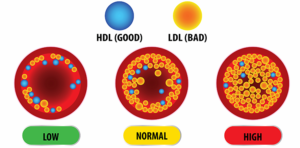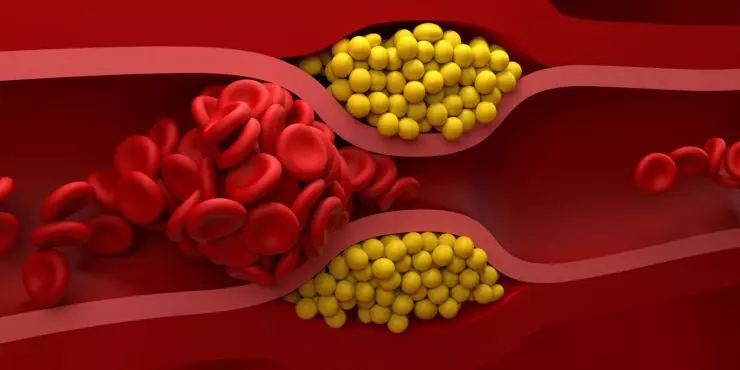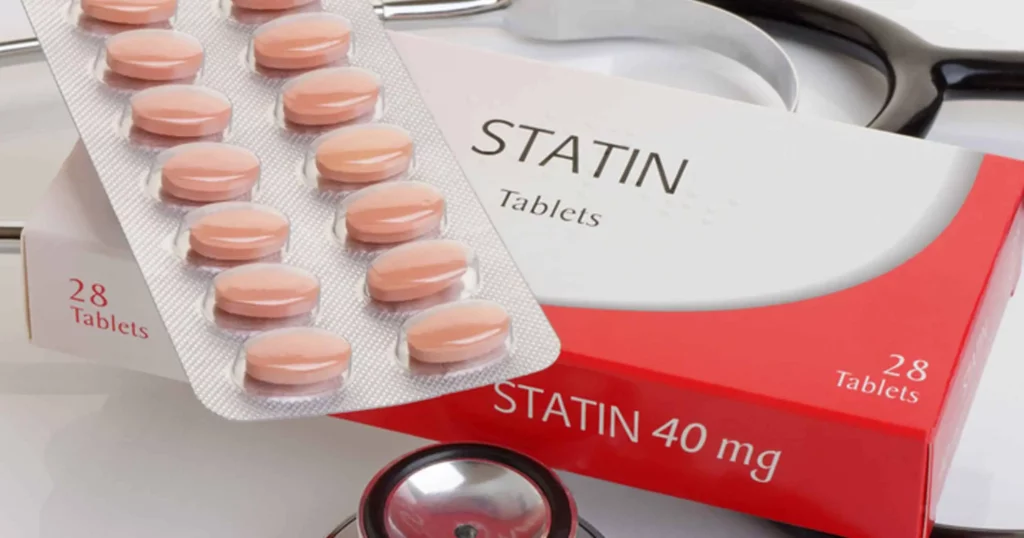I’m going to break down the basics of cholesterol and its role in your body. Cholesterol might seem like a bad guy, but it’s actually a crucial substance that your cells need to function properly. It’s a type of lipid that helps to build cell membranes, make certain hormones, and produce vitamin D.
Lets have a look at the two different types of cholesterol: LDL and HDL.
LDL cholesterol is often referred to as ‘bad’ because high levels can lead to plaque buildup in your arteries.
HDL cholesterol, on the other hand, is known as ‘good’ because it helps remove other forms of cholesterol from your bloodstream.

For men, cholesterol isn’t just about heart health; it also plays a fundamental role in testosterone production.
Testosterone is the key hormone affecting muscle mass, bone density, and sexual function. Maintaining the right balance of cholesterol is therefore not only crucial for your heart but also for your overall well-being.
In my opinion, understanding your cholesterol levels is the first step in managing your health risks. It’s important to recognize that cholesterol impact varies from person to person due to genetics, lifestyle, and various other factors.
The Impact of High Cholesterol on Men’s Health
I’m going to delve into why keeping an eye on cholesterol levels is vital for men.
Elevated cholesterol doesn’t just creep up; it barges in, often without clear symptoms, which is why it’s dubbed a silent threat. It’s no secret that high cholesterol can pave the way for serious health issues, especially heart disease and stroke, both of which are leading causes of death globally.
You see, when we talk about the effects on men’s health, we’re not just outlining a single risk factor for a single disease. High cholesterol can have a domino effect. It contributes to atherosclerosis, a condition where arteries stiffen due to plaque buildup, compromising blood flow, and oxygen distribution to vital organs, including the heart and brain.

And guess what? Reduced blood flow doesn’t just put your heart at risk; it’s also a common culprit behind erectile dysfunction, a condition that, understandably, gets a lot of attention in men’s health discussions.
But it doesn’t stop there.
High cholesterol can also interact with other conditions like hypertension, diabetes, and obesity, amplifying risks and complicating health profiles. This is why it’s crucial to not only monitor cholesterol levels closely but also to understand the interconnected nature of these health concerns. When one falls out of balance, it can trigger a cascade effect on overall well-being.
Dietary Choices and Cholesterol Management
You’ve probably heard that certain foods are ‘bad’ for your cholesterol, right?
Well, it’s not quite as simple as labelling foods ‘good’ or ‘bad’.
Your body’s cholesterol levels are influenced by a variety of dietary factors.
Foods high in saturated fats and trans fats can raise your LDL cholesterol. That’s the stuff that’s often found in processed foods, fried goods, and some dairy products. On the flip side, there are foods like oily fish, nuts, and whole grains that can actually help boost your HDL cholesterol.
Now, about those dietary patterns. It’s not just about single foods, but your overall eating habits. Diets high in fruits, vegetables, lean proteins, and whole grains have been shown to support healthy cholesterol levels. These include the Mediterranean and DASH diets, both backed by strong evidence for heart health benefits.

You might be wondering about eggs, dairy, and shellfish – they’ve gotten a bad rap for their dietary cholesterol content. Recent studies, however, show that for most people, dietary cholesterol has a minimal impact on blood cholesterol levels. The focus should rather be on the mix of fats in your diet.
I also want to bust a common myth: no, not all plant-based fats are automatically good for you. While it’s true that many plant-based oils are healthier, some still contain saturated fats, like palm oil, so you’ll want to consume them in moderation.
Remember, making smart dietary choices is a key part of cholesterol management. But don’t worry too much about the occasional indulgence; what matters most is the overall pattern of your diet.
Exercise and Its Effect on Cholesterol
I’m going to share with you how staying active isn’t just good for your muscles; it’s crucial for your cholesterol levels, too. Regular exercise can positively affect your cholesterol by tipping the scales in favor of HDL, the good cholesterol that helps keep arteries clear. But it’s not all about the HDL; exercise can also lower levels of LDL, which is the type you don’t want too much of.
You’re going to find out about the types of physical activity that work best for your heart. Aerobic exercises, like walking, jogging, or cycling, help raise HDL cholesterol and lower LDL cholesterol and triglycerides. On the other hand, resistance training, such as weightlifting, can also benefit your cholesterol profile by improving muscle mass, which in turn may help your body process fats and sugars more effectively.
You can always adjust your approach down the road, but starting with a mix of both types of exercise is a solid strategy. Aim for at least 150 minutes of moderate aerobic activity or 75 minutes of vigorous activity a week, along with muscle-strengthening exercises on two or more days a week, as recommended by the American Heart Association.

Choose something that resonates with you, because if you enjoy it, you’re more likely to stick with it. There’s a lot of opportunity in finding a physical activity that you actually look forward to doing. That’s the strategy I like to leverage when advising on exercise routines. Finding joy in movement can make all the difference in maintaining a healthy lifestyle.
What’s next after establishing a good exercise routine? Well, it’s monitoring our progress and managing cholesterol medically, when necessary. That’s what we’re going to dive into in the next section, ‘Medical Interventions for Cholesterol Control’. Here, I’ll discuss how, along with smart lifestyle choices, medical treatment plays a crucial role for some men in keeping cholesterol levels in check.
Medical Interventions for Cholesterol Control
Now, let’s turn our attention to the medical side of things. There’s a lot you can do with diet and exercise, but sometimes, that might not be enough. If your cholesterol levels remain high, it might be time to consider medication as a potential ally in your health journey.
You may have heard of statins; these are the most commonly prescribed medications for lowering LDL cholesterol levels. Statins work by blocking a substance your body needs to make cholesterol, which helps your body remove cholesterol from your blood.

But statins aren’t the only game in town. Other medications, like PCSK9 inhibitors, bile acid sequestrants, and cholesterol absorption inhibitors, also play a role in managing high cholesterol. Your doctor can help you navigate these options and decide what’s best for you.
Regular health screenings are crucial; they tell the story of what’s going on inside your body. Usually, you’ll get a lipid panel, which shows your LDL and HDL levels, as well as triglycerides, another type of fat that can affect your health.
In my opinion, preventive care is the best care.
Don’t wait until symptoms show to check in on your cholesterol. By then, it might be a bit harder to manage. Make those health screenings a regular part of your health maintenance.
And if you’re prescribed medication, think of it as part of a larger health strategy. Medication can be incredibly effective, but it’s most potent when paired with lifestyle changes. Changes in diet and exercise can not only support your medication’s effectiveness but also improve your overall quality of life.
Remember, communication with your healthcare provider is key. They’re there to help guide you through this process and make adjustments as needed. They can also keep you informed about the latest advances in cholesterol management. Choose a healthcare provider that you’re comfortable with and who understands your health goals and concerns.
The Future of Cholesterol Management in Men’s Health
Now, let’s peer into what lies ahead for cholesterol management, specifically for men’s health. With scientific advances moving at a brisk pace, the future holds promising possibilities.
We’re seeing a surge in research aimed at uncovering new treatments for cholesterol-related conditions, from gene editing to innovative drugs that target lipid metabolism more precisely.
These advancements could revolutionize how we approach cholesterol management.
Lifestyle interventions are also evolving. I’m talking about tech-driven nutrition apps, fitness trackers, and personalized diet plans based on genetic profiles. These tools are empowering men to take charge of their health like never before.
Most importantly, the future emphasizes personalized health care. Doctors are beginning to tailor cholesterol treatments based on individual risk factors and genetics.
This isn’t just a one-size-fits-all approach; it’s a finely tuned strategy to keep men’s health on track.
Finally, I’d like to encourage you to stay informed and proactive about your health. Your journey with cholesterol management is personal and ongoing. With new options on the horizon, your commitment to managing your cholesterol today can lead to a healthier, happier tomorrow.
As always, thanks for taking the time to read this article. I hoped you found it helpful & if you have questions or comments, please leave them below & I will reply to you.




